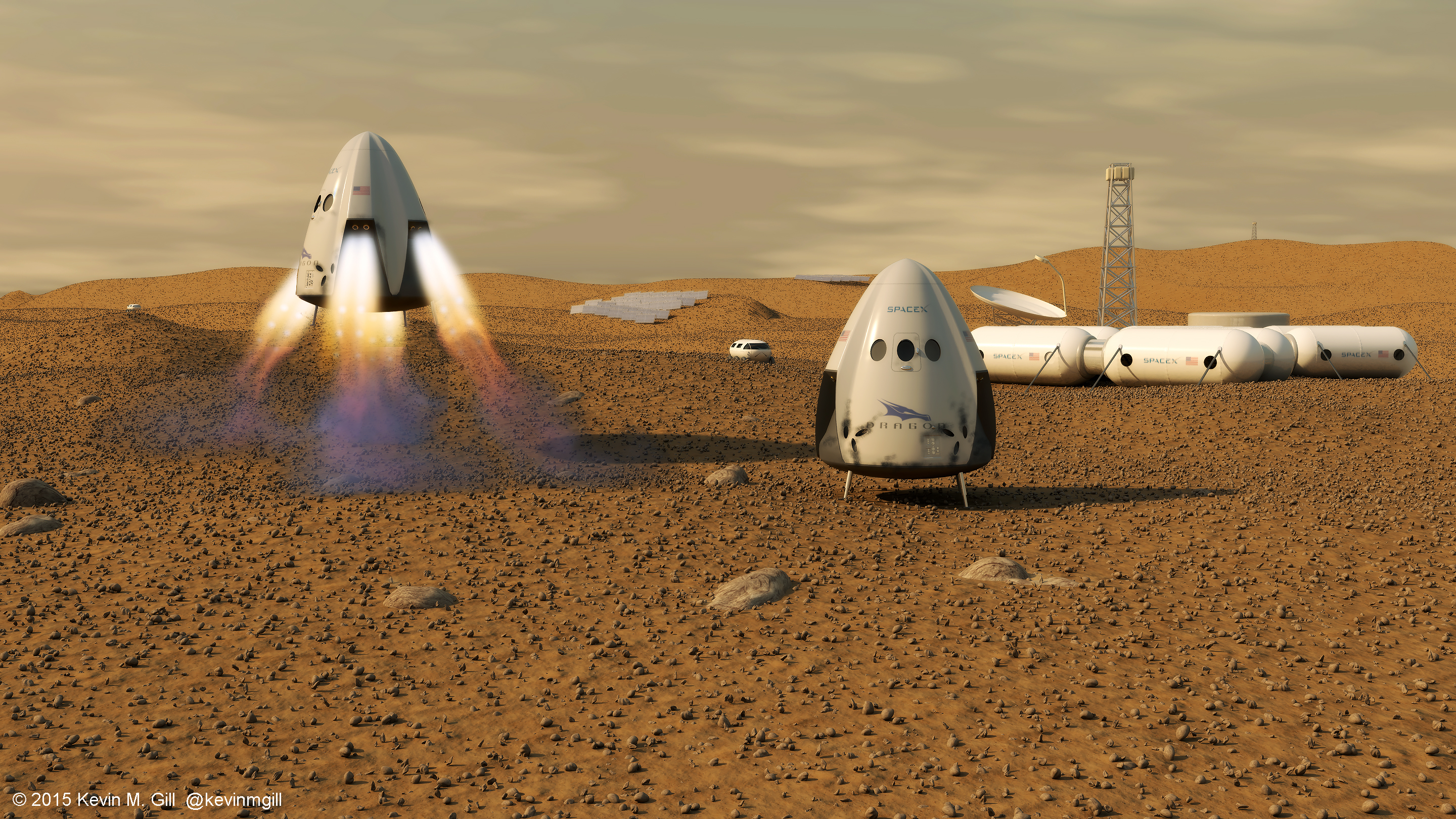by Katherine Sheets, Copy Editor
We left Matt Damon on Mars. We sent Matthew McConaughey into a black hole. We made clones of Tom Cruise to clean up a desolate Earth. And for what? It’s all in the name of humanity surviving on a planet other than the one we inhabit now. Maybe these situations are a bit far-fetched, but what happens if the scientists and filmmakers are right? Does humanity’s survival rely on colonizing another planet? And if so, is this enough reason to spend billions of dollars on a mission to Mars?
In February 2016, the Obama administration proposed spending over $19 billion dollars to send men to the red planet. Critics suggest that the mission is a waste of federal funds, but according to Business Insider’s Jessica Orwig, that’s because humans tend to be too short-sighted. Orwig says that scientists are looking to the future in hopes of continuing the human race for another million years, and to do so, colonizing Mars is the next logical step. Scientists believe that the earth and its resources will eventually fail man, so having an exit-plan is just wise preparation. But God’s timing is not man’s timing. Why focus on years that are not promised to us? If nothing else, we should go to Mars on the basis of exploring God’s creation, not to explain our existence or plan man’s undying future.
The main problem with the idea that Earth will fail to sustain human life is that scientists are rejecting the basic principle of creation: Genesis 1 says that God made the earth and he made man to dwell in it and have dominion over it. Yes, the earth may have environmental problems, but nothing like the other planets in our galaxy. As of now, living on another planet than Earth is impossible just due to the atmospheric make-up.
On Feb. 22, NASA announced the discovery of seven new Earth-sized exoplanets – planets orbiting a star in the Milky Way other than our own – and based on the location of the planets in relation to the star, they believe the planets could have liquid water and sustain life.
However, if another planet were to sustain life, it would raise the question of how Christ’s death and resurrection relates to those on another planet. There can’t be people on other planets, because either a) Jesus would have had to die twice or b) they would be waiting for Christians to bring the gospel into space. Hebrews 10:12 quickly shoots down that idea: “But when Christ had offered for all time a single sacrifice for sins, he sat down at the right hand of God.” And in the beginning of creation, Genesis 2:8 says that “God planted a garden in Eden, in the east, and there he put the man whom he had formed.” It does not say he put man on another planet, or on some other world that he had made. We will likely never find life on another planet because God did not intend for man to live anywhere other than Earth.
God did, however, create man with undying curiosity and minds to reason and solve problems. Just because man can’t live on Mars or an exoplanet doesn’t mean he shouldn’t go there. As astronomer Neil deGrasse Tyson told National Geographic, “If there’s a place you’ve never been, there’s a scientist who wants to know what’s there.”
Additionally, a mission to Mars may be the chance for man to develop new technology that will not only help people walk on the surface of another planet, but perhaps solve other issues here on Earth. According to NASA, the same algorithm used to take pictures in the Hubble Space Telescope is now helping doctors detect early stages of breast cancer. Another algorithm is used to measure the energy efficiency of both Mars rovers and new homes being constructed here on earth. Going to Mars will not only expand the world’s technological possibilities, but it will also reveal the intricacies of God’s creation as we explore the next frontier.


